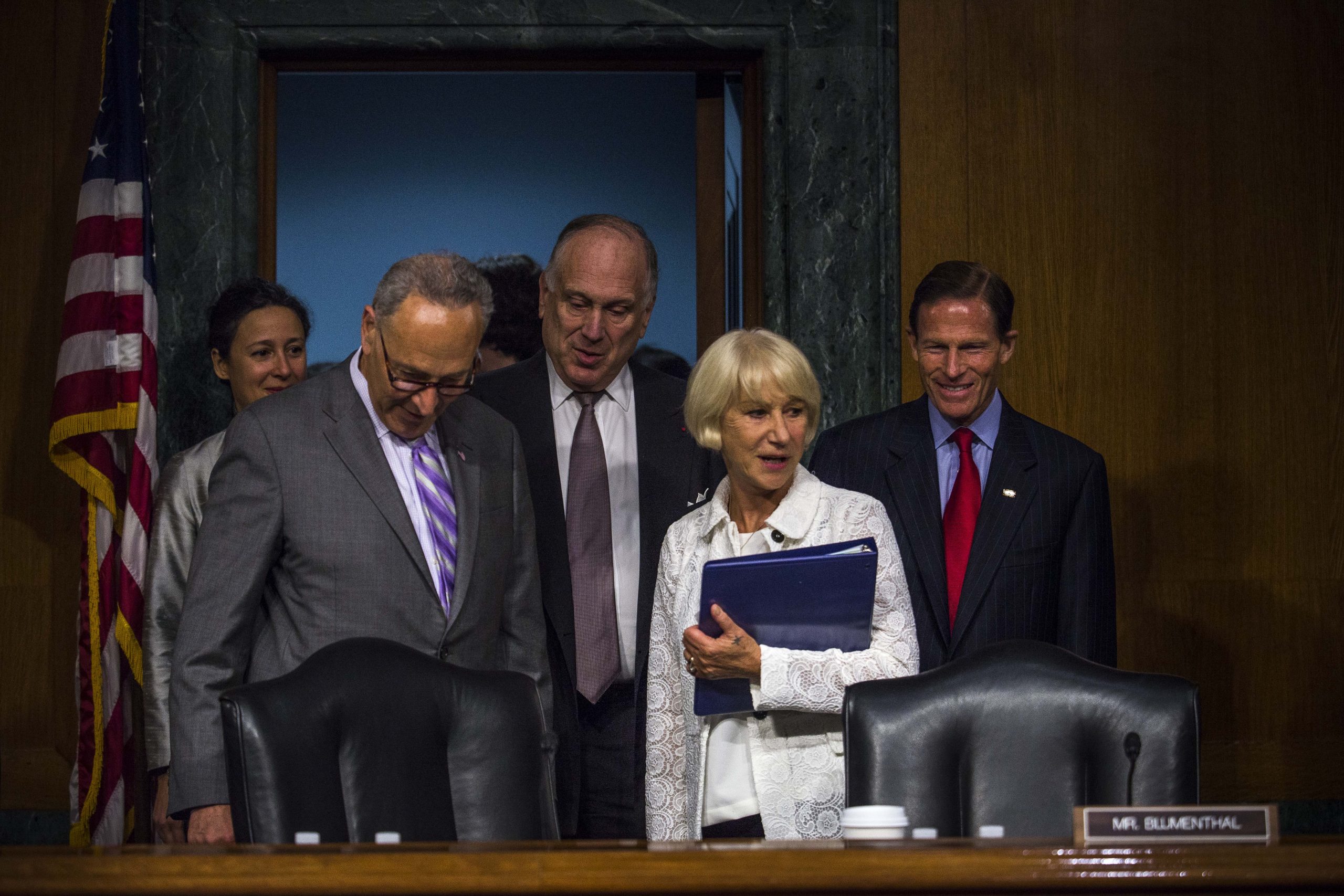June 7 was big day for Ted Cruz. For one thing, he got back in the saddle: That morning, Cruz spoke on the Senate floor—about national security and flooding in Texas—for the first time since suspending his presidential campaign in May. And that very afternoon, when the Senate Judiciary Committee heard the bipartisan-backed Holocaust Expropriated Art Recovery (HEAR) Act, a bill to help ensure the heirs of Nazi-looted art their day in court, he got to meet Dame Helen Mirren.
The bill proposes a federal reset of statutes of limitation, which vary from state to state, to lift unfair restrictions from heirs’ claims. More than seventy years since the Holocaust, the generational withering of memory and dwindling number of Holocaust survivors, coupled with a fortuitous wave of publicity thanks to a recent Oscar-nominated movie, has re-upped the moral imperative to never forget. And so, the HEAR Act came to the Senate with an irrefutably just urgency: Judiciary chairman Senator Chuck Grassley promised to proceed expeditiously. And, as can only help matters, it also came to committee with a star-studded witness list, including lifelong advocate and patron of the cause Ambassador Ronald Lauder and actress Helen Mirren, who portrayed Maria Altmann, the claimant of five Nazi-looted Klimt paintings, in the Woman in Gold.
Cruz, presiding as acting committee chairman, praised the bill as “just one modest step” in a much greater journey—”The quest to reunite Holocaust victims with their stolen heritage is ultimately a quest to help them reclaim a tangible link to … a time before the darkness of the Holocaust.”
A wounded soldier back among the “Washington cartel,” Cruz has been the HEAR Act’s most vocal cosponsor at a time when some say building bridges ought to be his top priority. His fellow cosponsor Senator Chuck Schumer, invoking moral duty with “seventy years later, still wrongs to be righted,” mirrored the language Cruz used to justify federal intervention into crimes formerly adjudicated at the state level. And another cosponsor, Senator Richard Blumenthal, referring to his own family’s devastation during the Holocaust, dismissed a common (and accurate) classification of the Nazis’ vast campaign of thievery—”the greatest displacement of art in human history”—as overly clinical.

From left to right: Dr. Agnes Peresztegi, President, Commission for Art Recovery; Senator Charles Schumer (D-NY); Ambassador Ronald S. Lauder, Chairman Of The Council, World Jewish Restitution Organization; Dame Helen Mirren; Senator Richard Blumenthal (D-CT) Photo credit: Gabriella Demczuk
Ambassador Lauder shamed museums and galleries’ postwar practice of waiting out the statute of limitations before displaying or selling stolen works. Helen Mirren revealed learning the agony of lost heritage, memory, and family through her own art. Legal expert Dr. Agnes Peresztegi warned legislators not to neuter the bill with procedural obstacles. A provision to narrow the definition of looted art, for instance, would limit the number of federal cases under the HEAR Act, leaving more authority with the states—but at what cost? Senator Orrin Hatch, a late-coming cosponsor and self-professed Helen Mirren fan (“You are one of my favorite people,” he told the actress from the bench), was the only one to voice the federalism concern during questioning. Perhaps anticipating that challenge, Dr. Peresztegi had previously argued that Nazi-looted art claims merit the same exceptional legal status as genocide.
Given the immensely devastating reaches of the Holocaust, it’s hard not to marvel at the ability of American government to extend even so modest a measure of justice to the victims of humanity’s greatest crime—particularly when the rest of the world seems otherwise occupied, batting around a certain presidential candidate’s latest tweets, for example. In this one chamber of the Senate office building on a Tuesday in June, there was a dual sense of healing—from hearing pleas for justice long overdue and, to a lesser degree, from a return to the gravitas of consequential government.
